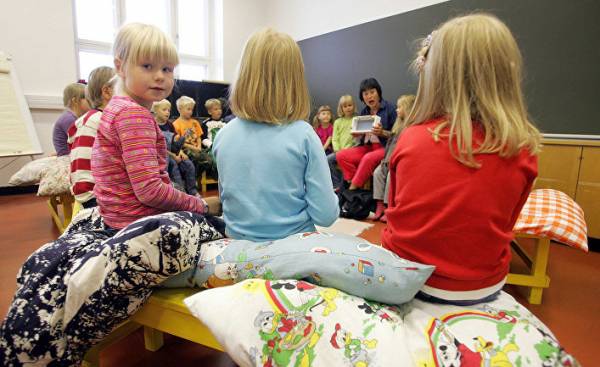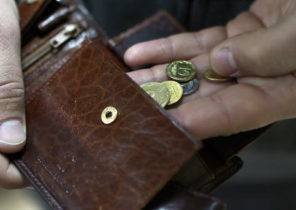
Garbage sorting and reducing car trips is of course good. But the most effective advice to anyone who wants to reduce their harmful impact on nature is not to have children. It is concluded by scientists from Lund University. In the latest survey lists the most effective measures that could be taken by anyone who wants to reduce carbon dioxide emissions into the atmosphere.
The scientists compiled a list of the four most effective household actions to reduce our carbon footprint include: vegetable based diet, less travel and fewer trips by car. But with a big lead among available to us ways to take care of nature, as it turned out, the decision not to have children. The fact that this measure is 20 times more effective than the next second most effective item daily care of nature.
The purpose of the study was to give people an honest chance to affect your carbon footprint, which determines how much carbon dioxide is released as a result of the lifestyle that we lead. According to a study by Swedish Agency for social research Sifo in February, 92 % of Swedes believe that it is important to live with the concern about the climate. At the same time, only 13 % know that they can do for this.
“I constantly get this question from people who are interested in what they can do to reduce the impact on climate, so I think people are lacking of such knowledge,” says Kimberly Nicholas (Kimberly Nicholas) from Lund University participated in the study.
“I think many concerned about the risks that come with climate change, and people want to know what each person can do to participate in solving problems,” she continues.
Together with fellow scientist Seth Wynes (Wynes Seth) she worked for 39 various respected sources of information on how a variety of domestic measures that affect our carbon footprint. It was and scientific reports, and all sorts of tools that are used to measure the impact on climate of different activities.
They also considered what advice to give the government of Canada, the USA, Australia and Europe people who want to do more gentle in relation to climate life. Then she discovered that great attention is given to measures that have a relatively small impact on the environment. The Council to give birth to smaller children not seen anywhere.
Often, there were calls to carefully sort garbage — despite the fact that even with meticulous sorting garbage can reduce our carbon footprint by a maximum of 0.2 ton per year. The corresponding figure for families that decide not to have children, is equal to 58.6 tons per year for each parent.
Kimberly Nicholas believes that this is due to the fact that overpopulation is considered to be primarily a problem of developing countries.
“It may be that many believe that the issue of population growth applies only to developing countries, and not realize that we are living in a developed part of the world, actually provided a greater impact on nature. We allocate a much greater amount of carbon dioxide in terms of each person”.
Although Kimberly Nicholas and believes that it is important that everyone be informed regarding the impact on nature is having the birth of a child, she’s not sure that authorities should encourage people to abandon children.
“For most of us this is the most important choice in life — and very personal”.
At the same time, she believes that it is important to understand what impact can have new children to nature.
“When you start to think about how to get a child here you need to weigh many factors. I don’t think that the consequences for the environment — that is the first thing will be to thinking people, although I believe that many people today recognize that continued population growth means depletion of our nature. I have with my fiancé, no kids yet. We are discussing how to make a choice. And since it is very important what is happening with the climate, this is another reason to consider our decision.”
“But the most important thing is still the fact that each individual person has learned what he needs to do to reduce their own impact on the climate,” she says, “If we want to do this the climate task is to prevent global temperature rise by 2050 more than two degrees compared to pre-industrial levels — we need at this point to reduce our carbon dioxide emissions by about 90 %”.
She believes that the impact of mankind on climate is determined by three components: how many people live on the planet, how much we consume and how much carbon dioxide is released when produced what we consumed.
Right now the value of the world’s population is a component that has the greatest impact, at least in the developed part of the world. But this is due to the high level of carbon dioxide, which we are currently allocated. This level will be reduced if we are able to establish a more economical from the point of view of the climate issue life.
“Therefore, the most important is to start thinking about how we can live so that the planet also felt good. I think that today many people know what a large amount of emissions they are the source, and that it is actually possible to live well and with less effect on the climate.”







